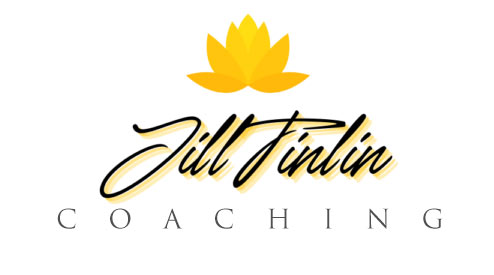Overview
Have you ever wondered why change is so hard? Even changes you had planned for and have been working toward, such as graduating from college, striking out on your own, landing a big promotion, getting married, and starting your own business. Experiencing anxiety, even when life is good, is more common than you might think. It can be confusing because you tell yourself, “I’m happy. How can I be anxious?”
Anxiety doesn’t know what your circumstances are, nor does it wait for the “right” time to show up. Humans are creatures of habit. We crave familiar routines and habits. When we stretch beyond our comfort zones, it can trigger our fear and anxiety symptoms.
We tend to look at change as one big event. Change doesn’t work like that; change is a process. We make a series of decisions, we move toward new circumstances, we bring new people into our lives; these adjustments can have a cumulative effect on us. Eventually, there can be a price to pay for all the change. Change can lead to various symptoms of anxiety, including discomfort, uncertainty, worry, sleep disturbances, mood fluctuations, and other related issues. Transitioning into a new phase of life means stepping into unfamiliar territory.
What is Happiness Anxiety?
Happiness anxiety is a type of anxiousness you would feel when success is within reach. You are about to fulfill a long-awaited goal, realize success in your career, or experience something joyful. Life is good; things are working out just like you dreamed. And suddenly, you feel panicked. You feel like running away or the opposite—you feel frozen, trapped. The fear creeps up on you and takes over. Anxiety and fear might lead you to isolate yourself.
Where do these paradoxical feelings come from?
Happiness is unknown to many people. The feeling of things going their way is foreign. Achieving a goal or realizing a dream and the subsequent sense of joy can cause anxiety and may be overwhelming for them. Happiness can make them feel vulnerable. Vulnerability can lead to feelings of being unsafe, especially for individuals who have experienced some form of trauma or for those who have had to overcome adversity to carve out their place in the world. Under these circumstances, people can become almost afraid of happiness because it feels scary and new.
Others may become preoccupied with the pursuit of happiness. The need to “be happy” can lead to feelings of pressure, worry, and even guilt when they aren’t experiencing happiness. They may become obsessed with planning or goal-setting to make themselves happy. Happiness should be a by-product of our efforts. Happiness isn’t meant to be the goal. By making happiness the goal, we are trying to hit an ever-moving target, which will inevitably lead to feelings of stress and burnout.
People often do not fear success in and of itself. What they fear is the cost of becoming successful. We might call this “The Cost of Doing Business”. To succeed, one must be willing to set and achieve goals. It means making sacrifices and enduring losses. For some, the price is just too high.
We expect success to make us happy, but sometimes, we associate success with fear. When someone associates success with fear, they may hesitate to push themselves out of their comfort zone. Fear can be a natural response to the unknown; feeling anxious when trying something new is shared. The problem arises when fear begins to limit one from exploring new growth opportunities.
Success is subjective. It means different things to different people. It is important not to focus on the external markers of success, such as status or wealth. One must acknowledge limiting beliefs and any underlying fears holding you back. Defining success on your terms instead of comparing yourself to other people may help reduce feelings of stress and anxiety.
Reasons why achieving success causes unhappiness in some:
People may feel unhappy after achieving success or reaching a goal for several reasons:
Arrival Fallacy: The idea or, more accurately, the illusion that reaching some more significant endpoint will lead to long-term happiness. You got the promotion, landed the account, and felt so proud. But after the excitement wears off and the reality of life sinks in, what now? Where do you go from here?
Unfortunately, achievement doesn’t equal happiness. We believe we are successful when we achieve our dreams and goals; the expectation of success for future goals triggers your brain’s reward centers. Your brain produces chemicals that soothe you. The feeling you get from succeeding continues to give you that hit from those mood-boosting chemicals. But over time, your brain adjusts. So when you meet your goal, it is less satisfying than expected.
There is a simple solution to avoid falling into this trap: Instead of putting all your eggs into one basket, set a series of goals. Constantly challenge yourself to achieve the next higher level or reach an even brighter future.
Anti-climax: We can be so focused on the excitement of achieving that once we reach the finish line, get the reward, or receive the accolade, it is underwhelming.
Unrealistic expectations: Focusing only on the goal, without considering the result, can lead to disappointment or unexpected outcomes. For example, you set your sights on a big promotion. You have been waiting for this opportunity for years, you deserve it, the bump in pay will be life changing. You land the promotion! The position is nothing like you expected. The demands are overwhelming, they expect you to be available 24/7, if this is management they can have it. Have you researched and asked questions before throwing your hat in the ring? You might have adjusted your goal toward a different position that would have fit your personal lifestyle and professional goals.
Comparison Fallacy: The Comparison Fallacy assumes that it is possible to accurately and usefully compare one’s skills, priorities, and goals.
It is important to remember we are not other people, and other people are not us. We tend to fixate on the accomplishments of different people. There is no upside to comparing ourselves to what others can achieve. We can’t know their sacrifices to reach their goals or the obstacles they have overcome. Ultimately, what matters are the things that are in your control. Are you focusing on your goals?
Are you doing something you enjoy? Do you surround yourself with people that enrich your life? Keeping focus on your goals and your progress are the only things in your control.
Fear of Failure:
The fear of failure is multifaceted. When we seek to achieve personally meaningful goals, we may feel threatened by the idea of adverse consequences. People who fear failure tend to be perfectionists or have perfectionistic tendencies. The concept of failure is closely tied to the fear of experiencing shame and embarrassment. The fear of having performance evaluations is difficult for a person with perfectionistic tendencies.
There has been a strong correlation between procrastination and a fear of failure.
The fear of failure causes extreme anxiety. Perfectionists equate performance with self-worth. It is essential to remind oneself that there is no growth without failure—no learning, no development, no new experiences.
Five ways to overcome the fear of failure:
- Develop a growth mindset
- Build your failure muscle in a safe space
- Recall successful people who failed many times before they were successful
- Watch a toddler as they learn to walk–they fail over and over before they succeed
- Practice viewing failures as your teachers instead of indulging in self-recrimination
How to Cope with Happiness Anxiety
Happiness anxiety can be exhausting. You might not understand your feelings and maybe frustrated about why you can’t accept the good things in your life. It is possible to want success and still feel happiness and anxiety after you find it. The phenomenon is real. If you cannot find healthy coping methods, it can steal the joy from life’s most momentous occasions. The good news is that there are effective ways to manage your happiness and anxiety.
Engage in self-care
Self-care is essential to maintaining balance and happiness in life. It involves taking care of your physical, mental, and emotional health. When you are dealing with anxiety, self-care becomes even more critical because it reinforces the idea that you are worthy and deserving of good things.
- Create a routine that promotes a healthy lifestyle
- Do things you love
- Set boundaries – protect your time, your energy, and your spirit.
- Practice mindfulness – Mindfulness is the practice of being in the moment. It can help you learn to recognize the good in life and focus on gratitude so you can let go of whatever is causing you anxiety.
Tips for practicing mindfulness:
- Use mindfulness exercises — Meditation or breathing exercises for anxiety can calm the mind and alleviate symptoms
- Stay grounded and present—Learning to stay in the moment can be helpful, especially if your anxiety about happiness comes from a fear of loss. Try not to worry about the “what ifs.”
- Identify and label feelings—Sometimes, it is helpful to acknowledge your emotions as they arise. Remembering the phrase “feelings aren’t forever” can also be beneficial. This premise offers perspective and can help reduce the intensity of your anxiety.
Lean on Support
A support system ensures a safe space to share your feelings and get advice. It can play a significant role in your ability to manage and overcome happiness anxiety.
Tips for finding support
- Joining a support group — A support group of like-minded people can help remind you that you deserve to be happy when you don’t believe you are.
- Don’t isolate — Engaging with others keeps you grounded and connected.
- Find an accountability partner — An understanding person who has experienced something similar can offer empathy and advice as you navigate anxiety.
Challenge negative thoughts
Negative thoughts can quickly become embedded beliefs — even when those beliefs are untrue or unhealthy. Believing you don’t have the right to be happy or that your happiness is at risk is harmful to your mental health, which is why it is imperative to challenge negative thought patterns.
Tips on challenging negative thoughts:
- Identify thought patterns that are unhealthy, unhelpful, or untrue.
- During what should be happy times, see if you can catch yourself thinking things like, “This won’t last,” or “I don’t deserve to be happy.”
- Shift your perspective; instead of focusing on your happiness anxiety, focus on your hard work.
- Practice positive affirmations. Research shows that positive affirmations can reduce anxiety and can help us reframe negative thoughts.
Get professional help:
Suppose happiness anxiety is impacting your life and overall well-being. It might be time to talk to a professional. A life coach may be able to help you develop an action plan to help you find coping tools and strategies to improve your quality of life. A therapist may be able to help you uncover the root of your happiness anxiety by discovering the past issues or the trauma that may be keeping you from reaching your potential.


